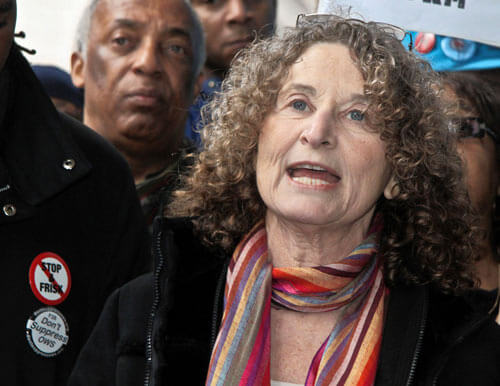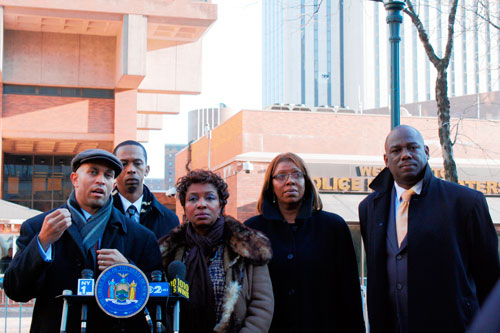This past March marked two big milestones for the NYPD’s controversial ‘stop-and-frisk’ policy. The five millionth New Yorker was stopped and frisked, and a federal lawsuit against the policy began, which could end in federal oversight of the whole department.
Both are menacing signs for the future of our city.
We’ve reached this point because the stop-and-frisk policy is broken. It lacks real oversight, and has become so overused that many stops are little more than racial profiling—stopping innocent people on the street for no reason other than their race. Few neighborhoods in New York tell the story as starkly as our Caribbean communities do. In areas like East Flatbush, Prospect-Lefferts Gardens and Crown Heights, at least 93 percent of the people stopped in 2012 were black or Latino. And the overwhelming majority of those persons stopped had committed no crime, and were issued no summons.
These facts are tearing apart the bond between police and community. People feel they are targeted because of their race or ethnicity; they feel frustrated because they are being stopped despite doing nothing wrong; and all of this is brewing antipathy toward law enforcement. Police officers on the beat see this with their own eyes. When I talk to officers who patrol the streets, they worry the quota-driven pressure to stop innocent people is costing them allies and information they need to do their jobs. They resent the time they’re spending to make bad stops instead of doing the kind of police work they were trained for—going after the real bad guys.
It doesn’t have to be this way. We can keep neighborhoods safe and go after the real criminals when police and the community are working and communicating together. And that means reforming the stop-and-frisk policy that’s driving a wedge between cops and neighborhoods.
First, it’s time for real oversight at the NYPD. We need an independent Inspector General who has the power to review police procedures like stop-and-frisk before they get out of control. Right now, the NYPD is the exception among big law enforcement agencies for not having an independent monitor. The police departments in Chicago and Los Angeles have Inspector Generals, as do the FBI and CIA.
We would never have gone from 100,000 stops per year when Mayor Bloomberg took office to nearly 700,000 stops in 2011 if we had a monitor in place. An Inspector General must have real subpoena powers to investigate, and would have a truly independent budget. This position would oversee the police department, right-size policies like stop and frisk, and ensure that we have real accountability.
Second, we need to pass the Racial Profiling Bill introduced by Councilmembers Jumaane Williams and Brad Lander in the New York City Council. We cannot continue to allow hundreds of thousands of young men to be stopped in the street for no other reason than the color of their skin. The new law would finally ban racial profiling and contrary to Mayor Bloomberg’s fear-mongering, it would still allow the police to follow legitimate leads and descriptions to apprehend suspects.
Finally, there needs to be new leadership at the helm of the NYPD—a leader who will work with and not against community interests and foster better relations between law enforcement and residents. The NYPD would be well served by these reforms because they protect officers just as readily as they protect residents. These reforms will help police and the community work better together and ultimately reduce crime and keep our streets safe.





















